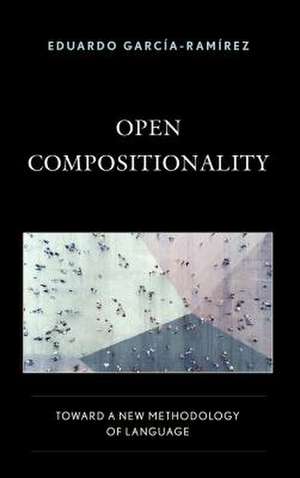OPEN COMPOSITIONALITY TOWARDSCB
Autor Eduardo Garcia-Ramirezen Limba Engleză Hardback – 26 iun 2019
Preț: 685.98 lei
Preț vechi: 890.88 lei
-23% Nou
Puncte Express: 1029
Preț estimativ în valută:
131.28€ • 136.55$ • 108.38£
131.28€ • 136.55$ • 108.38£
Carte tipărită la comandă
Livrare economică 14-28 aprilie
Preluare comenzi: 021 569.72.76
Specificații
ISBN-13: 9781498562720
ISBN-10: 1498562728
Pagini: 252
Dimensiuni: 152 x 229 x 25 mm
Greutate: 0.53 kg
Editura: Rowman & Littlefield
ISBN-10: 1498562728
Pagini: 252
Dimensiuni: 152 x 229 x 25 mm
Greutate: 0.53 kg
Editura: Rowman & Littlefield
Notă biografică
By Eduardo García-Ramírez
Descriere
Open Compositionality: Towards a Methodology of Language offers a fresh view into human languages as supermodular, highly interactive cognitive capacities allowing for human unique thought and communication. It is a novel account of semantics as decision-making in tandem with the cognition first methodology.
